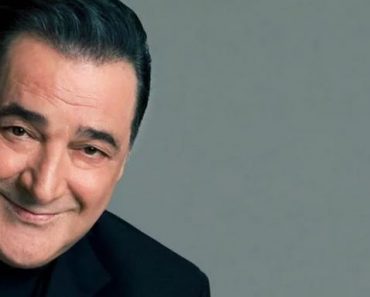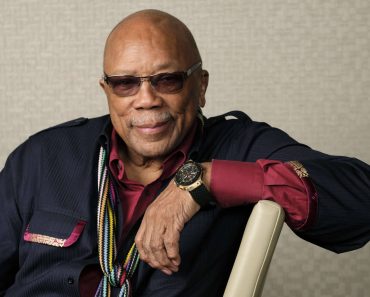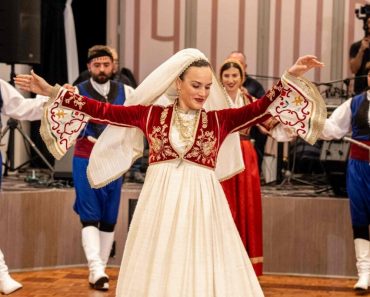NEW YORK – On a Friday afternoon in October, Despina Delianidis is helping a customer pick the perfect ring from an array of colorful, Greek-made jewelry. She works part-time to help finance her studies. “I tell my Greek cousins that America is not what it used to be. And I am worried because no politician seems to have a plan to give me hope.”
Queens, home to the Greek enclave of Astoria, has traditionally been a Democratic stronghold. Polling shows that it will remain blue next week. But, internal community dynamics tell a more complicated story. The choice between Kamala Harris and Donald Trump has been polarizing for Greeks, an unprecedented climate for the tight-knit community.
An important demographic
The Greek-American community is an important demographic for both parties. Earlier this month, a cohort of Democrats including former Massachusetts governor Michael Dukakis, outgoing Maryland congressman John Sarbanes, as well as celebrities like Tom Hanks and Nia Vardalos, sponsored a full-page letter in The New York Times. “In our great nation of immigrants, our families’ stories and Greek heritage embody the American Dream […] The values of ‘filoxenia,’ ‘filotimo,’ ‘eleftheria,’ and ‘demokratia,’ central to the Greek-American identity, are reflected in Vice President Harris’ life and career,” it read. At the same time, almost 10,000 people are members of the online community “Greek Americans for Harris,” created in response to the 2016 election of Trump.
The Republicans fare well, too. A 2020 Greek Reporter poll showed that 48% of surveyed Greek-Americans voted for Trump. Last month, the group “Greek Americans for Trump” hosted a sold-out reception in Philadelphia moderated by Republican Congress members Gus Bilirakis and Nicole Malliotakis. Online Republican support is also high, with more than 44,000 people following the Instagram page “Greeks for Trump.”
A difficult economic outlook
Delianidis notes that the past years have been particularly challenging for young people. “Most have two or three roommates, and very few live in Manhattan, where rents are prohibitively high.” But, she explains that even in Astoria, rental rates have skyrocketed, a trend that has driven many Greeks from the neighborhood. “The American dream is no longer possible,” says Dennis Amvrosiatos, a young cafe owner. He describes how young people live paycheck to paycheck and cannot buy a home or start a family.
It is not only the expenses of storekeepers that are high. Consumer prices have risen since 2020. Though inflation has recently dropped, it reached record-breaking levels during the Biden presidency. “You need at least 500 dollars for weekly shopping. Add to that baby formula and diapers and you are looking at a minimum 700 just for basics,” said a young mother of two.
Amvrosiatos is confident that Trump would be good for the economy. “He is a capable businessman; you can tell by how strong the economy was when he was in charge. We need his policies back.” This conviction is shared by voters on both sides, with a female Democratic voter admitting that though Trump is a “horrible person, who will be a dictator,” he can run the economy better.
Others view Trump’s economics with skepticism. “The tariffs that Trump preaches will be horrible and cause prices to climb higher,” claims Jim Panagiotou, a leader in the New York Greek music scene. Another Democrat describes the former president as a “typical New Yorker, who promises everything and delivers nothing.”
If not the economy, then what?
“Maybe I am young and not involved in the economy yet. Still, this election is not about selecting the candidate with the better platform. Elections have not been about that in a while.” Though pleading anonymity, this first-time voter says she is excited to “vote for basic rights.” She calls her vote “symbolic,” recognizing that, in a blue state like New York, it is not consequential. Still, she hopes her voice will help “ensure that Trump does not get power.” She specifically fears Republican policies on female reproductive healthcare. “I get the chills thinking of women losing our rights to our bodies.”
Amvrosiatos also remembers “getting the chills.” For him, it was watching Trump’s address at the Republican National Convention following his July assassination attempt. “It was the image of a patriot, someone who did not need to be president to be powerful, but sought power to help America.”
For Panagiotou, though, Trump is no patriot. “At the peak of the pandemic, he shipped thousands of Covid test kits to Russia, while people here were dying, suffering, and paying a fortune to access testing. That to me is anti-American.”
Another woman, who will be voting for Harris, questions how Greeks can vote for Trump. “I have friends who are proud of their Greek identity. And somehow they are fascinated by him. I do not understand how our values can align with those of a manipulator, a bully who thinks he is above everyone, and the whole system, too.”
She adds that this election is especially crucial for women. “What I have been telling my daughter from a very young age is that she can do everything that a man can, if not better. Trump does not believe that; he wants to run a boys’ club,” she says. “Our daughters need role models, and Kamala Harris can offer that.”
Threats to democracy
An October 25 poll showed that Americans’ confidence in democracy is eroding. Astoria’s Greeks agree that shielding civic principles is necessary. Still, there is disagreement about whom to blame for this assault on democracy.
The events of January 6 were shocking for Panagiotou. “This chaos was unprecedented for the United States. Trump not only encouraged the insurrectionists that day, but he also did not condemn them afterward.” For him, this was a direct attack on democracy.
Protecting democracy is a top priority for Angie Xidias, who recently mailed over 300 handwritten cards to swing-state voters to help turn out the vote. “Harris and Walz fundamentally respect our institutions and the rule of law,” she notes, adding that she is exhausted with the “chaos” surrounding Trump. “I am voting for a respectful candidate, someone our children can look up to, and who brings dignity to the highest office in the land.”
“Trump either likes you or hates you, and based on that assessment, he crafts policy. This is not how democracies work,” says a female Democrat who fears that in a second term, Trump might govern “less like the leader of liberal democracy and more like an autocrat.” Others are also worried about a second Trump term. “He has packed the Supreme Court with justices loyal to him, who have already deemed that he is immune and cannot be held accountable for any crime. This is uncharted territory for the country. And it scares me,” a longtime Democrat says.
Critiques about democracy and accountability are waged against Harris, too. Amvrosiatos is troubled by her direct appointment as the blue nominee, without a competitive Democratic Convention. “Kamala only received 5% of the vote in the 2020 Democratic primary; nobody supported her, even within her party,” he says. “So, how can someone who no one has ever picked be installed in charge of a party and run for president?”
A split community
“Trump could have gone down in history as a good president. I voted for him,” says Panagiotou. “But he divided the country, and this I will never forgive.”
Amvrosiatos has observed deep divisions within the community. “Our parents used to put presidential campaign signs on our store windows. It would spark conversations and healthy debate, it was normal.” He admits this is impossible nowadays, as the political climate has become vitriolic.
The young voter argues that divisions and secrecy within the community emerged in 2016. “I remember a mock election we held in junior high. Things got heated. Of course, at that age, most people’s arguments came from home, and there were a lot of strong feelings. A lot of strong feelings but few real arguments.” Xidias agrees that Trump’s entry into mainstream politics was a watershed moment that polarized the community. “It did not use to be like that.”
Unlike Pennsylvania or Georgia, New York is not a swing state. And though it will almost certainly be blue, most interviewees only agreed to speak under the condition of anonymity, citing fears of retribution, social pressure by peers and loved ones supporting a different party, or future employment risks. “The neighborhood is small and people talk,” someone said. In small communities like Astoria, next week’s election is personal. How the outcome will affect dynamics in New York’s Greek Town remains to be seen.







